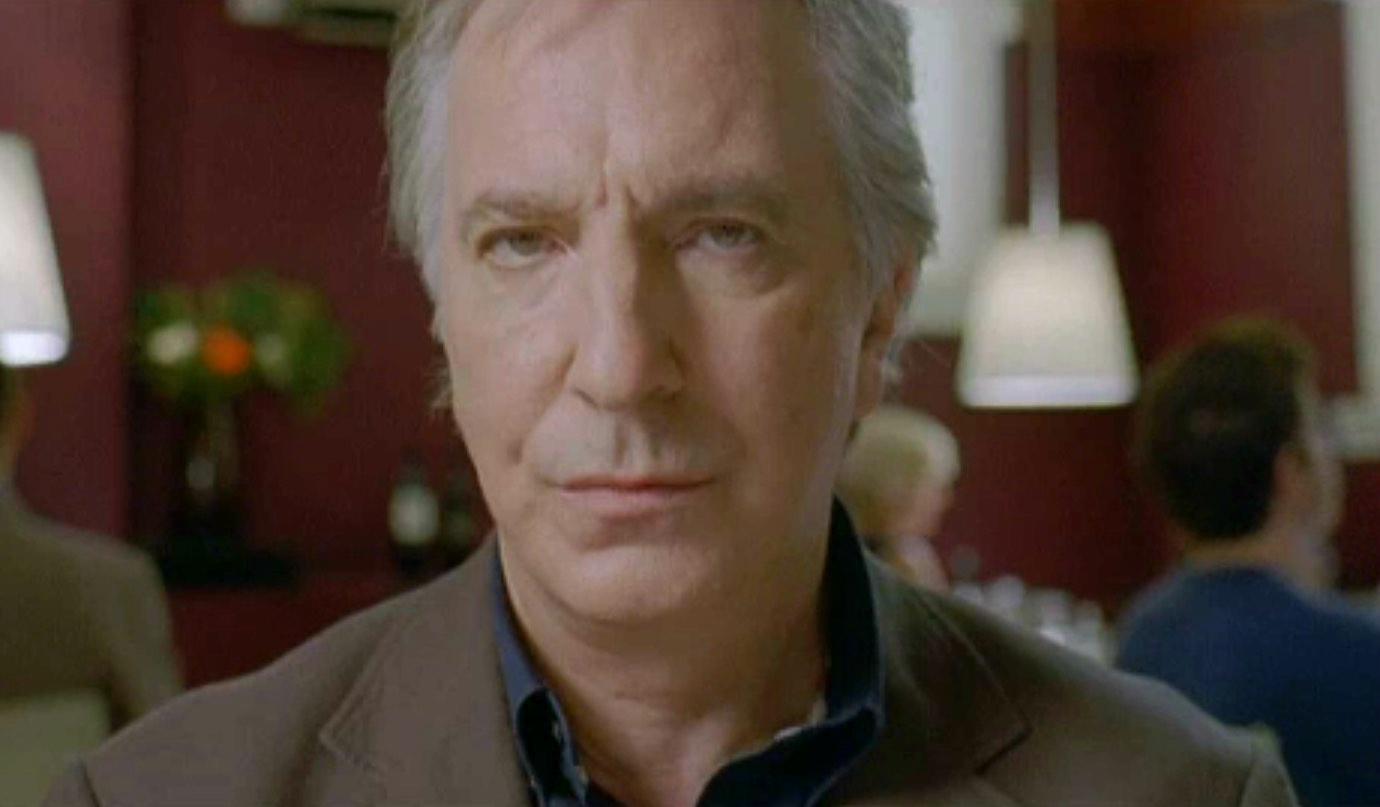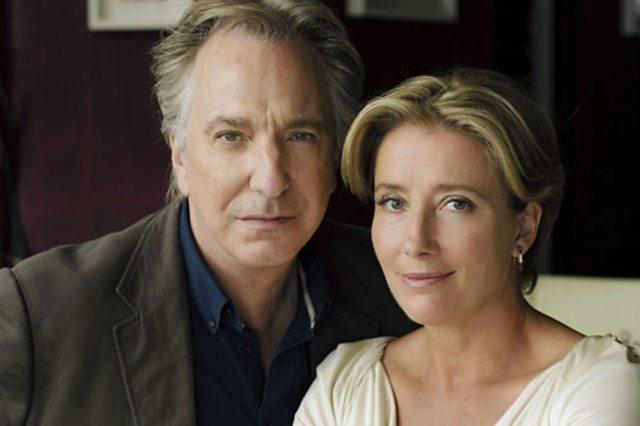The Independent's journalism is supported by our readers. When you purchase through links on our site, we may earn commission.
‘The Song of Lunch’ is essentially the Alan Rickman-Emma Thompson Love Actually sequel you're looking for
Centring on a pair of middle-aged ex-lovers (who split up over a Joni Mitchell CD, perhaps?) it is a beautiful and painful exploration of how we never truly ‘move on’

Your support helps us to tell the story
From reproductive rights to climate change to Big Tech, The Independent is on the ground when the story is developing. Whether it's investigating the financials of Elon Musk's pro-Trump PAC or producing our latest documentary, 'The A Word', which shines a light on the American women fighting for reproductive rights, we know how important it is to parse out the facts from the messaging.
At such a critical moment in US history, we need reporters on the ground. Your donation allows us to keep sending journalists to speak to both sides of the story.
The Independent is trusted by Americans across the entire political spectrum. And unlike many other quality news outlets, we choose not to lock Americans out of our reporting and analysis with paywalls. We believe quality journalism should be available to everyone, paid for by those who can afford it.
Your support makes all the difference.In 2010, Emma Thompson and Alan Rickman were reunited for an unprecedented piece of television, an adaptation of a poem.
Short on dialogue and heavy on interior monologue, BBC production The Song of Lunch went slightly under the radar but still plays on my mind seven years later; a stingingly real portrait of ageing, regret and self-loathing.
The story is simple: a man (“He”, Rickman) leaves his office and wanders through sunny Soho before arriving at an Italian restaurant to meet an ex-girlfriend (“She”, Thompson) for lunch. She has moved on but at least retains a care for his well-being, while He has grown bitter with heartbreak and deals with this by monopolising the restaurant’s merlot.
You could be fooled into thinking it was a sequel of sorts to 2003’s Love Actually (a colleague of mine actually was, entirely accidentally, upon recommendation of the film by myself), perhaps set a decade after Harry gave Karen that Joni Mitchell CD for Christmas. This does The Song of Lunch a disservice, though, it’s much, much better, and I say that as someone with as much of a fondness for Love Actually as everyone else.
The language, taken from Christopher Reid’s poem of the same name, is beautiful, with every sip of wine and sideways glance being given careful attention and description. You can feel Rickman’s character’s passion burning, completely abortively and misdirected as anger. Rickman is fantastic as the proxy for the viewer, while Thompson plays the foil perfectly, really conveying that accidental condescension that comes with worrying about someone you used to love.
“The Song of Lunch in itself, is quite a brief story,” executive producer Greg Wise wrote in 2010. “However, as with all things great, it is also a huge story.
“It is mythical – it is a Greek tragedy, it is Orpheus and Eurydice, it is a man trying to bring back to life his dead wife.”
After getting the OK from Reid, who accepted cuts to his piece, Wise faced the challenge of persuading the BBC to make it; an experimental adaptation of an epic poem. He went in with low expectations, but needn’t have.
“Allegedly, nobody had ever witnessed a quicker commission,” Wise remembers, “partly as I thought the piece should be broadcast on National Poetry Day (which was fast-approaching) and partly because our two stars, Alan Rickman and Emma Thompson had a tiny window of availability (also fast-approaching).”

Watch Apple TV+ free for 7 days
New subscribers only. £8.99/mo. after free trial. Plan auto-renews until cancelled

Watch Apple TV+ free for 7 days
New subscribers only. £8.99/mo. after free trial. Plan auto-renews until cancelled
Shot over 10 stifling days in London, the film was amazingly effective, and at times you forget it’s even a poem you’re essentially watching – the rich torrents of words flow that naturally.

It is a “film full of hope, despair, regret, drunkenness, verbal dexterity, but above all, humour. The humour of life, of the absurd,” Wise said.
“From the outset, I was adamant that this piece had to stand up in its own right, shouldn’t be seen as a rarefied intellectual exercise, that we, as the audience, should forget that this is a poem, until a rhyming couplet suddenly jumps out at us – above all, we should be taken on a wonderful journey, surrounded by words: words seamlessly moving from voiceover narration into dialogue, back into narration.
“We should wallow in a sea of words: hear them, taste them, smell them.”
If you’re yearning for more Rickman/Thompson, Harry/Karen (since there won’t be any in the mini-Love Actually sequel), or, like me, enjoy daring to peak into what could be your future in an act of cultural self-flagellation, I urge you to wallow in the words too.
Sadly, the film isn’t on iPlayer right now (BBC, if you’re reading this, please do something about that) but can be bought on iTunes US.
Join our commenting forum
Join thought-provoking conversations, follow other Independent readers and see their replies
Comments